Brian Dooley interviews Ukrainian violinist Nataliia Halunenko, who gave up her performance career abroad to help provide aid in her home country
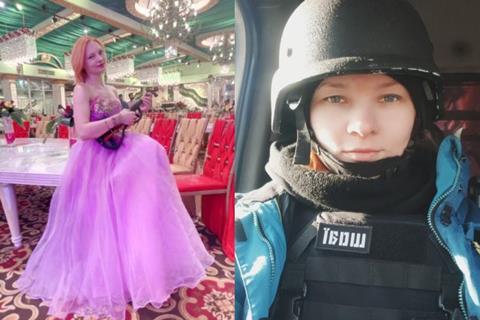
Read more news stories here
Former professional violinist Nataliia Halunenko has spent the last two years in some of the most dangerous places in Ukraine, providing medical and humanitarian aid to locals under fire.
Based in the northeastern city of Kharkiv, she helps deliver food, medical aid, and vehicles to those on the front line. It is difficult, high-risk work.
’This volunteering gives me good sense of who I am, it’s exhilarating and useful,’ she says. ’In some ways it gives me similar feelings to those I had performing as a musician.’ She was studying music in Crimea in 2014 when the Russian invasion of Ukraine that year forced her to relocate and complete her courses in the west of the country.
Halunenko then spent the three years of 2017 to 2020 as a professional violinist in India, crisscrossing the country, playing at events in dozens of cities. It was hard work with little time off. The promised four-day break a month didn’t always happen.
’We played a lot of Bollywood tunes, and it took a while to adjust to the new music, but I loved it,’ she said. ’Though I don’t miss playing the score of the Titanic over and over again.’
She returned home to Ukraine during the Covid lockdown, and was preparing to return to India to resume her music career when the large-scale Russian invasion happened in February 2022. Her home town Svatove in the Luhansk region was taken over and occupied by Russian forces.
’My mum is a prominent journalist, and the Russian soldiers took her and held her for three days for interrogation. It was terrifying. We they released her we decided to leave,’ she said.
They negotiated their way through a dozen military checkpoints before reaching unoccupied Ukraine, and headed for Kharkiv, the country’s second-largest city. She began volunteering almost immediately.
’At first I was making food parcels for people living on the front line. Then I agreed to help deliver them.’ She has taken aid to some of the most dangerous places in the conflict - right into Bakhmut and Avdiivka when the towns were under severe shelling. ’People there were huddled together in cellars, a dozen or a couple of dozen together, waiting for the food we brought them.’
Last November I went with Halunenko and a small team of medics to the city of Kupiansk to treat vulnerable people still living under almost constant shelling. Halunenko has trained as an ambulance driver, and has done courses in battlefield medical response.
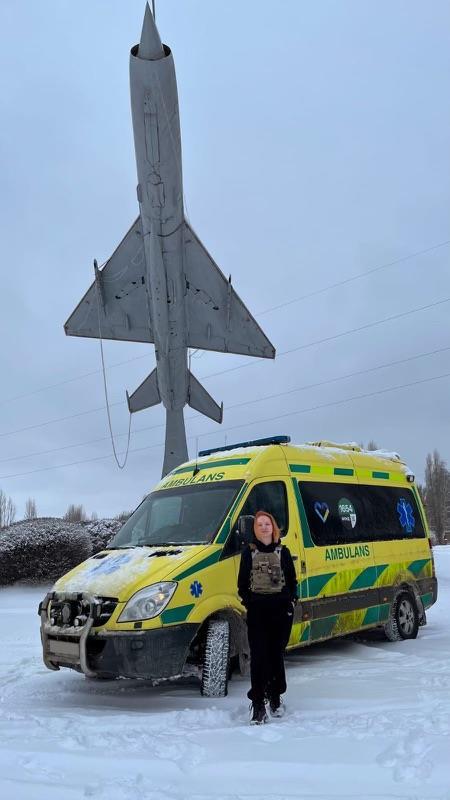
’Going into a town being bombed, I don’t feel that scared,’ she said. ’I’m focused on what needs to be done. And when I’m there I’m concentrating on doing what I need to. But on the way out afterwards is when some fear can set in - things can change minute to minute and while you’re right at the heart of the war zone you’re without internet and don’t get updates, so when you leave you never know if the road out is safe.’
Back in the city things aren’t exactly quiet. She walks around the streets of Kharkiv with a medical pack of tourniquets and other equipment in case she’s in a neighbourhood that gets bombed.
Dozens of civilians have been killed on the streets by missiles in recent weeks.
In recent weeks she’s been making the long trip by train across the length of Ukraine to Poland or Germany to pick up donated vehicles, and then makes the thousand-mile drive back across to Kharkiv. ’This volunteering work gives me real satisfaction, it feels like what I should be doing while the war is on,’ she said.
Last week she picked up her violin at home for the first time in six months. ’It took the first hour or so for my brain and fingers to get back into the rhythm of everything, for it to be automatic again. It was fun, but if I ever went back to being a professional violinist while the war continues I’d stop understanding who I am.’
Brian Dooley is a senior advisor for Human Rights First. He has been reporting regularly from Kharkiv and the surrounding region close to the Russian border since the February 2022 full-scale invasion.
Read: ‘Music must be played, life must go on’: an update from Ukrainian violin maker Orest Putsentela
Read: ‘The voice of a generation’ - Young Ukrainian musicians: Fighting for the future
Read more news stories here
The number one source for playing and teaching books, guides, CDs, calendars and back issues of the magazine.
In The Best of Technique you’ll discover the top playing tips of the world’s leading string players and teachers. It’s packed full of exercises for students, plus examples from the standard repertoire to show you how to integrate the technique into your playing.
The Strad’s Masterclass series brings together the finest string players with some of the greatest string works ever written. Always one of our most popular sections, Masterclass has been an invaluable aid to aspiring soloists, chamber musicians and string teachers since the 1990s.
American collector David L. Fulton amassed one of the 20th century’s finest collections of stringed instruments. This year’s calendar pays tribute to some of these priceless treasures, including Yehudi Menuhin’s celebrated ‘Lord Wilton’ Guarneri, the Carlo Bergonzi once played by Fritz Kreisler, and four instruments by Antonio Stradivari.

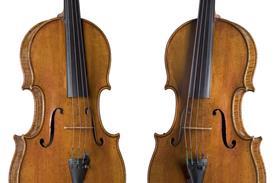


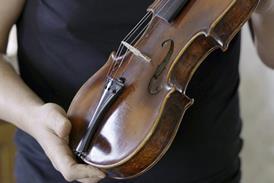




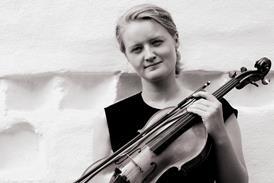



























No comments yet